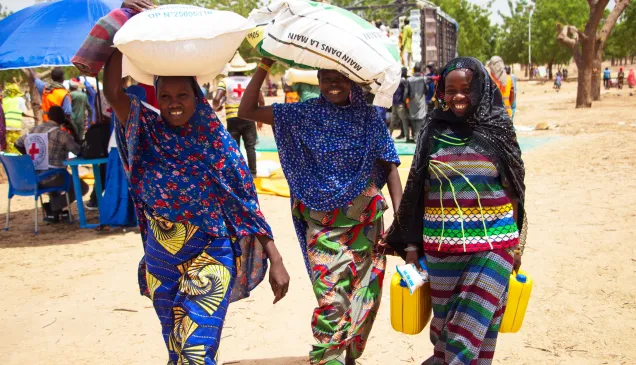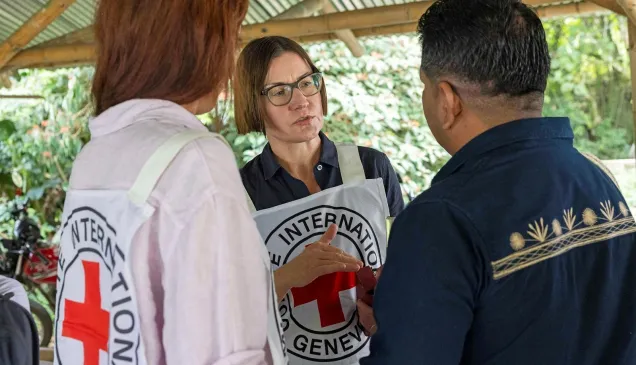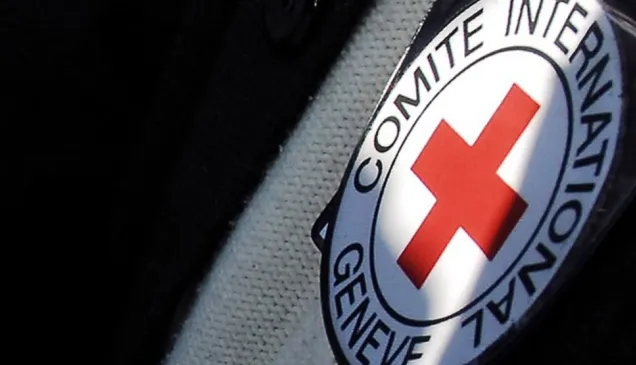The continued wave of Black Lives Matter and other anti-racism protests, across the United States and beyond, has put a spotlight firmly on deeply ingrained historic and systemic racist attitudes and discrimination against black people and people of colour – including in the humanitarian sector and in our own organizations. The International Red Cross and Red Crescent Movement is committed to help achieve the required changes to all systems that are oppressive to people of colour.
In recent weeks, many colleagues across the Movement have spoken up about their own experiences or perceptions of racism and discrimination. Many have expressed solidarity. There is a clear collective desire to achieve equality and dignity in the treatment of all people – those whom we serve and those who serve with us. This is also a global call for equal access by all - including migrants, indigenous peoples and minorities - to food, shelter, health care, education, and full respect for international humanitarian law.
Some of the conversations have been painful and uncomfortable, revealing hard truths about racism and related discrimination. These include entrenched problems of power imbalances and subtle, insidious, and unconscious inequity engrained in our structures and history.
At both the International Committee of the Red Cross (ICRC) and the International Federation of Red Cross and Red Crescent Societies (IFRC), we have been listening, learning and asking ourselves some serious and difficult questions about these issues within our organizations. We need to do more, and we need to be better.
Rejection of discrimination of all kinds lies at the heart of our Fundamental Principles and values. Our principles of humanity and impartiality demand that there be no discrimination on the basis of nationality, race, religious beliefs, class or political opinions. This is key to ensuring that the suffering of anyone in need may be relieved. Our principle of neutrality does not mean staying silent in the face of racism and violence.
The Fundamental Principles provide the ethical, operational, and institutional framework for our work as a Movement around the world. Drawing on our principles, it is our duty to take forward the drive for diversity. We are committed to the global struggle to promote and protect the rights of all, with no exception.
The Red Cross and Red Crescent Movement has long embraced inclusive initiatives. The very structure of National Societies makes our global network particularly inclusive of people of colour, different ethnic origins and religious backgrounds. However, our humanitarian work and financing demand that we continuously examine our own behaviour, practices and structures to ensure that we are holding ourselves to the highest standards when it comes to inclusion and social equity.
Most importantly we must also ensure that words are translated into a meaningful reality. Achieving this requires total commitment across the whole Movement. We know that achieving genuine inclusion and diversity must begin first within our organizations. We need to better understand the linkages between discrimination, power imbalances and disadvantage. We need to dismantle the systemic barriers that may prevent colleagues from achieving equality because of their gender or their racial, ethnic, and cultural backgrounds. We know we have more work to do in this regard.
That is why, on behalf of the ICRC and IFRC leadership, we wish to express our firm and unequivocal condemnation of racism in all its forms, and to commit to taking steps toward ensuring an environment free from all discrimination within our Movement. This includes:
- At all levels, working to deliver the individual, structural and cultural change that will ensure no form of discrimination, intolerance or exclusion on racial or other grounds takes place within our organizations.
- Building a supportive, safe and inclusive environment to continue to foster honest conversations around racism and discrimination. This includes encouraging difficult questions to improve mutual trust, respect and acceptance of each other's diversity. It also entails strengthening understanding and support for better practices within the Movement, enabling all to have their voices heard and respected. Working to remove any culture of fear or impunity is an important aspect of this.
- Assisting victims of racism and racial discrimination and working actively with all stakeholders and partners at all levels to create the conditions to ensure the safety of all persons or communities affected by racism or discrimination on racial grounds.
- Ensuring that our institutional frameworks and statutory commitments prevent and strictly prohibit any forms of racial discrimination, and that racism and discrimination are expressly prohibited behaviours in our Codes of Conduct.
- Renewing our commitment to advancing the Fundamental Principles of our Movement, which aim for truly inclusive humanitarian action, and implementing activities that promote a spirit of racial tolerance.
The ICRC, for its part, commits to ensuring that there are clear and unambiguous expectations of its hiring managers, as just one specific example. A range of supportive policies and practices are being developed by the leadership team to drive organization-wide progress. The ICRC also stands firm in its commitment to engage communities in the decisions that affect their lives, breaking through power dynamics and patterns of exclusion.
The IFRC commits to working to fulfil the commitments in the Safe and Inclusive Workplace Pledge, launched at the International Conference of the Red Cross and Red Crescent in 2019. This allows the IFRC to commit to ensuring that the organization and the wider Movement are as safe, inclusive and accessible as possible; to eradicate racism whenever and wherever it is found; and to address any overt, hidden or unconscious biases and discrimination within its systems. This is essential to ensure that the Fundamental Principles are upheld, and that all people are treated with dignity and respect.
The Red Cross and Red Crescent Movement has a responsibility to rebuild fractured communities. All of us in the Movement are united by a common purpose: to make a positive difference in the lives of people affected by conflict, disasters and crisis. We are committed to ensuring that this driving force applies equally to how we treat one another within our own organizations. We are committed to upholding our Fundamental Principles and making our Movement as inclusive and accessible as possible, in words and deeds.
Jagan Chapagain
Secretary General
IFRC
Robert Mardini
Director-General
ICRC




